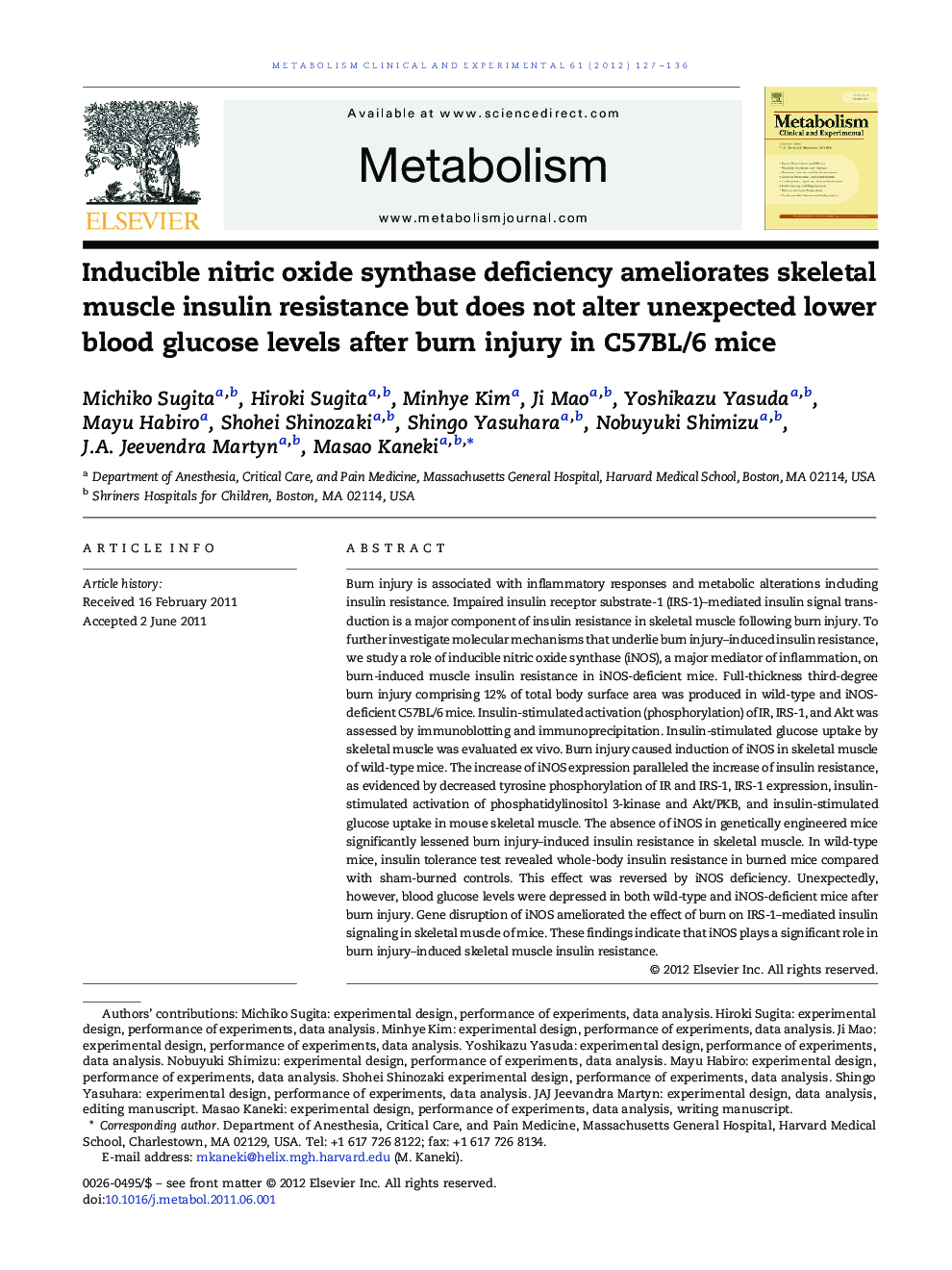| Article ID | Journal | Published Year | Pages | File Type |
|---|---|---|---|---|
| 2806246 | Metabolism | 2012 | 10 Pages |
Burn injury is associated with inflammatory responses and metabolic alterations including insulin resistance. Impaired insulin receptor substrate-1 (IRS-1)–mediated insulin signal transduction is a major component of insulin resistance in skeletal muscle following burn injury. To further investigate molecular mechanisms that underlie burn injury–induced insulin resistance, we study a role of inducible nitric oxide synthase (iNOS), a major mediator of inflammation, on burn-induced muscle insulin resistance in iNOS-deficient mice. Full-thickness third-degree burn injury comprising 12% of total body surface area was produced in wild-type and iNOS-deficient C57BL/6 mice. Insulin-stimulated activation (phosphorylation) of IR, IRS-1, and Akt was assessed by immunoblotting and immunoprecipitation. Insulin-stimulated glucose uptake by skeletal muscle was evaluated ex vivo. Burn injury caused induction of iNOS in skeletal muscle of wild-type mice. The increase of iNOS expression paralleled the increase of insulin resistance, as evidenced by decreased tyrosine phosphorylation of IR and IRS-1, IRS-1 expression, insulin-stimulated activation of phosphatidylinositol 3-kinase and Akt/PKB, and insulin-stimulated glucose uptake in mouse skeletal muscle. The absence of iNOS in genetically engineered mice significantly lessened burn injury–induced insulin resistance in skeletal muscle. In wild-type mice, insulin tolerance test revealed whole-body insulin resistance in burned mice compared with sham-burned controls. This effect was reversed by iNOS deficiency. Unexpectedly, however, blood glucose levels were depressed in both wild-type and iNOS-deficient mice after burn injury. Gene disruption of iNOS ameliorated the effect of burn on IRS-1–mediated insulin signaling in skeletal muscle of mice. These findings indicate that iNOS plays a significant role in burn injury–induced skeletal muscle insulin resistance.
